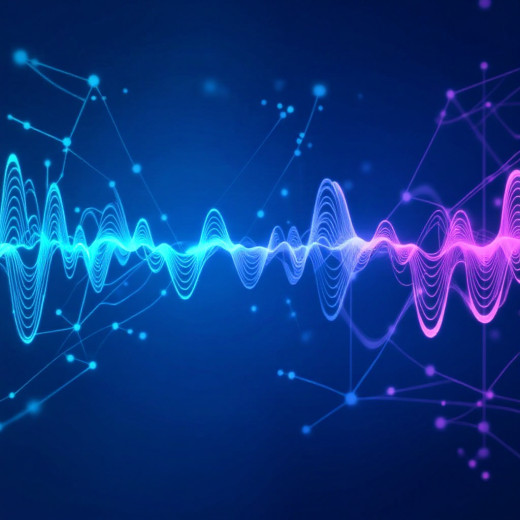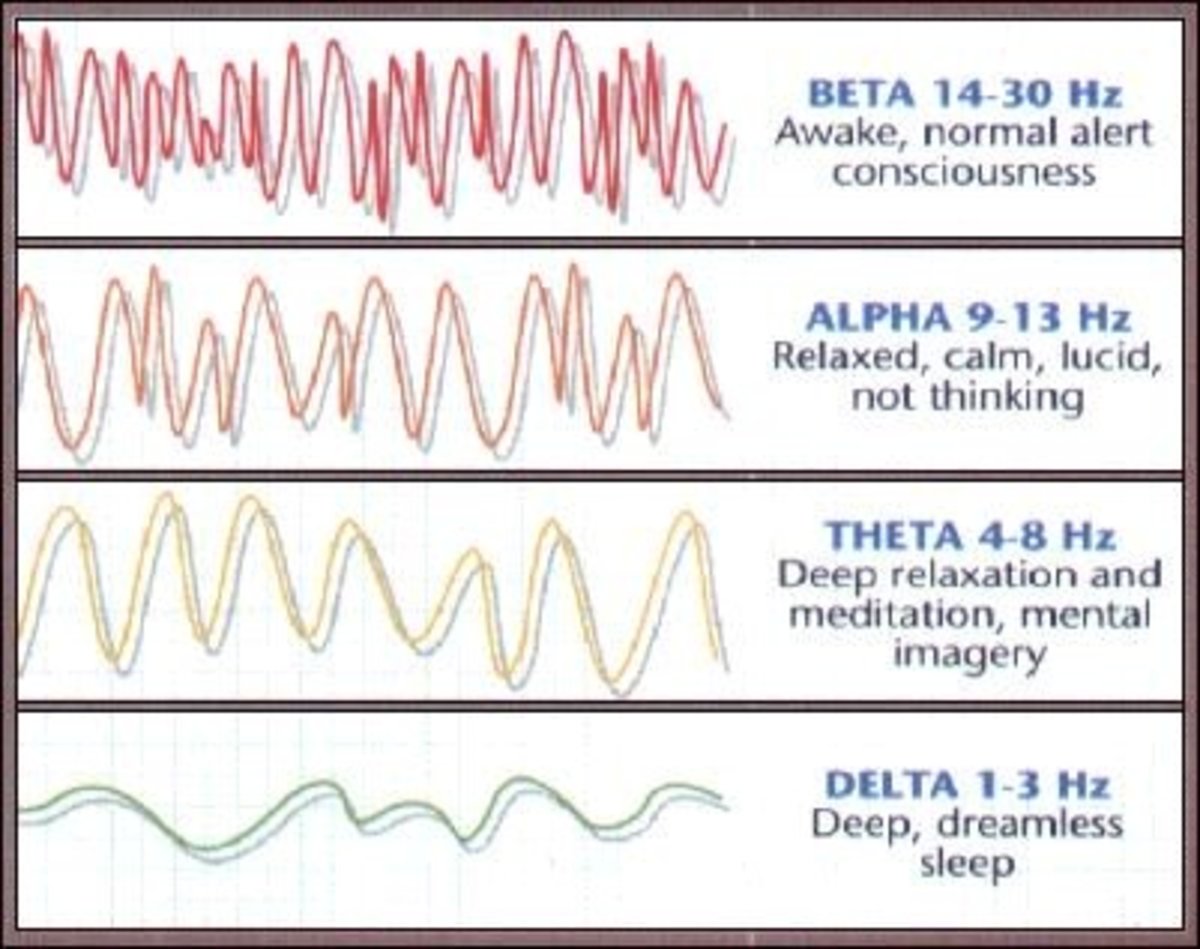Unlock Your Brain's Hidden Power: The Fascinating World of Binaural Beats

Imagine slipping on a pair of headphones after a stressful day, hitting play on a soothing track, and feeling your mind drift into a state of deep relaxation—almost like magic.
No pills, no fancy gadgets, just sound. That's the allure of binaural beats.
If you've ever wondered how sound can hack your brain for better sleep, focus, or even creativity, you're in the right place. In this article, we'll dive into what binaural beats are, the key researchers behind them, why they're a big deal for your health, and how they might just become your new go-to for everyday well-being.
What Exactly Are Binaural Beats? A Simple Breakdown
Picture this: You're at a concert, and two guitars are playing notes that are almost in sync, creating that weird, pulsating rhythm in the air. Binaural beats work on a similar principle, but inside your head.
At its core, a binaural beat is an auditory illusion created when two slightly different sound frequencies are played separately into each ear through headphones. For example, if 200 Hz plays in your left ear and 210 Hz in your right, your brain doesn't hear them as two separate tones. Instead, it processes the difference—in this case, a 10 Hz "beat"—as a single, rhythmic pulse.
This is rooted in how our brains process sound. The effect relies on something called brainwave entrainment, where the beat encourages your brain waves to sync up with that frequency. You won't hear the beat like a drum—it's more of a subtle vibration that influences your mental state.
Binaural beats are typically embedded in relaxing music or ambient sounds, available on apps like Spotify, YouTube, or specialized platforms like Brain.fm. They're easy to try—no special equipment needed beyond stereo headphones.
Simple
All you need is a pair of headphones.
Key Researchers Who Put Binaural Beats on the Map
Binaural beats aren't a modern invention—they've been around longer than electricity in homes. The story begins in 1839 with Heinrich Wilhelm Dove, a German physicist and meteorologist. Dove was experimenting with sound and discovered that playing different tones in each ear created this illusory beat. He didn't dive deep into its psychological effects, but his work laid the foundation, proving it was a real perceptual phenomenon.
Fast-forward to the 20th century, Gerald Oster, a biophysicist at Mount Sinai School of Medicine, published a landmark paper in Scientific American titled "Auditory Beats in the Brain." Oster mapped out how these beats could influence brain activity, linking them to brainwave patterns like alpha (relaxed) or theta (meditative) states. His research sparked interest in using binaural beats for therapy, showing they could potentially alter consciousness without drugs.
Robert Monroe, an American radio broadcasting executive turned researcher, founded the Monroe Institute in the 1970s. He popularized binaural beats through his "Hemi-Sync" technology, blending them with guided meditations for out-of-body experiences and personal growth. Monroe's books, like Journeys Out of the Body, turned binaural beats into a tool for self-exploration, influencing everything from NASA studies to modern apps.
Other notable contributors include Dr. Jeffrey Thompson, a composer and neuroscientist who's created binaural beat programs for stress relief, and contemporary researchers like those at the University of Oregon, who've studied their effects on focus and pain. While not all claims are ironclad, these pioneers have built a bridge from lab curiosity to real-world wellness hack.

Why Binaural Beats Matter for Your Health
In our fast-paced world, where stress is basically a full-time job, binaural beats offer a low-key way to hit the reset button. But why are they important for health? It boils down to their potential to influence brain waves, which are electrical patterns tied to your mood, focus, and even physical well-being.
Our brains operate on different frequencies:
- Delta (0.5-4 Hz): Deep sleep and healing.
- Theta (4-8 Hz): Creativity, meditation, and intuition.
- Alpha (8-12 Hz): Relaxed alertness, like that post-yoga glow.
- Beta (12-30 Hz): Active thinking and problem-solving.
- Gamma (30+ Hz): Peak focus and insight.
Binaural beats aim to "entrain" your brain to these states, potentially helping with everything from anxiety to insomnia. Studies, like a 2018 review in Psychological Research, suggest they can reduce preoperative anxiety in patients. Another from the Journal of Alternative and Complementary Medicine found theta beats improved meditation depth.
Health-wise, this matters because chronic stress wreaks havoc—weakening immunity, messing with sleep, and even contributing to heart issues. Binaural beats provide an accessible, non-invasive alternative to meds or therapy. They're not a cure-all, but they're backed by enough evidence to intrigue doctors and wellness pros. Plus, in a post-pandemic era where mental health is front and center, tools like this empower you to take control without leaving your couch.
What Can Binaural Beats Do for You? Real-Life Benefits and Tips
What could binaural beats actually do for your daily life? Here's a breakdown of the most popular benefits, based on research and anecdotes:
-
Stress and Anxiety Relief: Low-frequency beats (like alpha or theta) can calm racing thoughts. Imagine unwinding after a tough workday—studies show they lower cortisol levels, helping you chill without the wine.
-
Better Sleep: Delta beats mimic deep sleep patterns. If you're tossing and turning, a 30-minute session before bed might help you nod off faster, as supported by research in Sleep Medicine.
-
Enhanced Focus and Productivity: Beta or gamma beats rev up your brain for tasks. Writers, students, and remote workers swear by them for beating procrastination—think of it as caffeine for your neurons.
-
Meditation and Mindfulness Boost: New to meditating? Binaural beats make it easier by guiding your brain into a zen state, amplifying benefits like reduced blood pressure and improved emotional resilience.
-
Pain Management and Creativity: Some studies link them to easing migraines or chronic pain through relaxation. Creatives use theta beats to spark ideas, like unlocking a hidden brainstorm mode.
Of course, results vary—it's not magic for everyone. Skeptics point out the placebo effect, and more rigorous studies are needed. But hey, it's free to try! Start with apps like MyNoise or free YouTube tracks. Listen for 15-30 minutes daily, in a quiet spot, and track how you feel. Pro tip: Combine with activities like journaling or walking for max impact.
Wrapping It Up: Give Binaural Beats a Spin
From Dove's 19th-century discovery to Monroe's mind-expanding experiments, binaural beats have evolved into a fascinating tool for modern health hacks. They're not just sound—they're a gateway to tapping your brain's potential for relaxation, focus, and healing. Whether you're dealing with daily stress or seeking a creativity edge, they're worth exploring.
Ready to try? Search for "binaural beats for relaxation" on your favorite streaming service, pop in those headphones, and see what happens.
More from this author
- Does Yupp AI Actually Pay You Money for Questions?
AI companies are rabid for data, and that can be to your benefit. - AI Will Let Us Be Human Again
Not by replacing us—but by freeing us from the jobs and systems that made us less human in the first place.
© 2025 Kat Theisen







